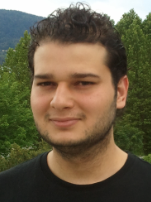Modelling for Ambient Assistance
Ambient Assistance is a growing field in ICT: Based on smart sensors, life video analysis tech-niques as well as speech recognition human cen-tred assistance becomes feasible and affordable. The range of applications is broad and covers eve-ryday situations in private and business environ-ments as well as support for people with special needs. Consequently, Ambient Assistance is a challenging and promising field for computer sci-entists, software engineers and information tech-nicians in both, research and application, with lots of questions to answer and technical solutions to find. Since dealing with the support of humans, it is an interdisciplinary field affecting Psychology, Neurology, Medicine, Law, Philosophy, Domot-ics and others more. Models play a key role in ambient assistance sys-tems as they act as the integral means for data and knowledge acquisition, representation, evaluation and exchange for the various system components. We will start our lecture with a short overview of already existing best practice examples and then work out the key notions and concepts that form the basis of modelling endeavours in that field. Based here on, we will discuss the objectives, con-cepts and elements of the “Human Cognitive Modelling Language” HCM-L, which was devel-oped in the “Human Behavior Monitoring and Support” project HBMS. Deeper insight will be gained in the afternoon Parallel Working Groups that are headed by members of the Application Engineering Research Group: Dr Judith Michael and Suneth Ranasinghe, MSc.
Lecture at NEMO2016
Date/Time: Tuesday, July 26, 2016 at 14:00



